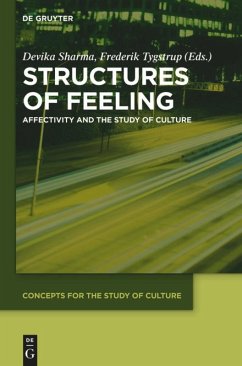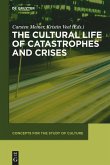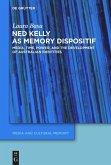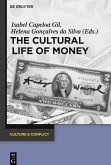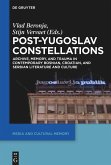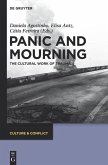Raymond Williams coined the notion "structure of feeling" in the 1970s to facilitate a historical understanding of "affective elements of consciousness and relationships." Since then, the need to understand emotions, moods and atmospheres as historical and social phenomena has only become more acute in an era of social networking, ubiquitous media and a public sphere permeated by commodities and advertisement culture.
Concomitantly, affect studies have become one of the most thriving branches of contemporary humanities and social sciences. This volume explores the significance of the study of affectivity for already thriving fields of cultural analysis such as media studies, memory studies, gender studies and cultural studies at large.
The volume is divided into four sections. The first part, Producing Affect, brings together contributions which explore some of the ways in which new media works to produce and intensify affectivity. The essays making up the second part, Affective Pasts, explore the significance of affect to the ways we remember, commemorate and in other ways get hold of things in our recent and not so recent past - or fail to do so. The essays engage the affective production of presence in contexts such as 9/11, the emotional culture of the eighteenth century, and literary auto-fiction. The third part, Affective Thinking, examines various concepts, theories, and forms of thinking not so much to show how the thinking in question may inform the field of affect studies but rather in order to draw attention to the way in which these modes of thinking are themselves already attuned to matters of affect. New social relations and ways of being in a networked world are the common themes of the essays in the final part of the volume, Circulating Affect.
Concomitantly, affect studies have become one of the most thriving branches of contemporary humanities and social sciences. This volume explores the significance of the study of affectivity for already thriving fields of cultural analysis such as media studies, memory studies, gender studies and cultural studies at large.
The volume is divided into four sections. The first part, Producing Affect, brings together contributions which explore some of the ways in which new media works to produce and intensify affectivity. The essays making up the second part, Affective Pasts, explore the significance of affect to the ways we remember, commemorate and in other ways get hold of things in our recent and not so recent past - or fail to do so. The essays engage the affective production of presence in contexts such as 9/11, the emotional culture of the eighteenth century, and literary auto-fiction. The third part, Affective Thinking, examines various concepts, theories, and forms of thinking not so much to show how the thinking in question may inform the field of affect studies but rather in order to draw attention to the way in which these modes of thinking are themselves already attuned to matters of affect. New social relations and ways of being in a networked world are the common themes of the essays in the final part of the volume, Circulating Affect.

